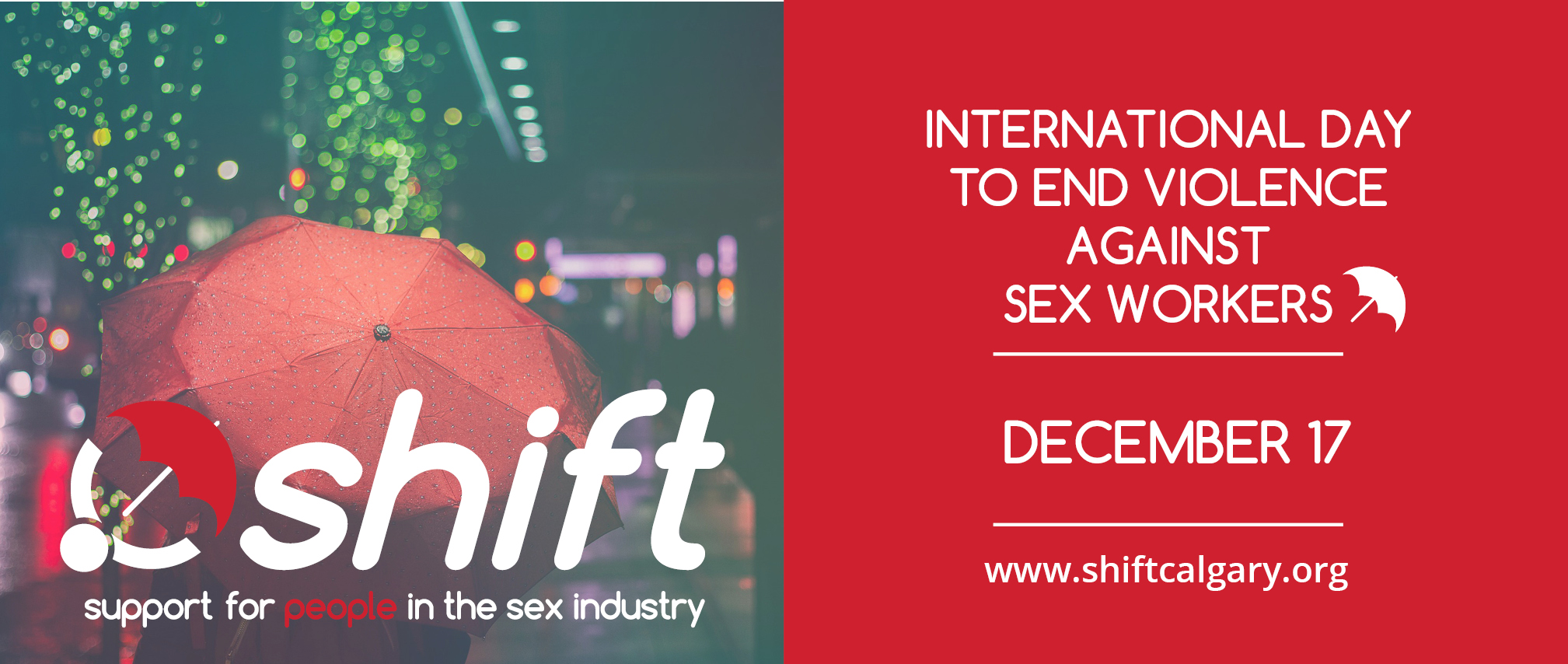December 17th is International Day to End Violence Against Sex Workers (IDEVASW). This day is a day that joins sex workers, allies, and advocates around the world in recognizing violence committed against sex workers globally. This day demands attention to the violation of sex workers human rights. Together we remember those we have lost, and renew our commitment to advocate for and support sex workers.
International Day to End Violence Against Sex Workers was first recognized in 2003, as a memorial and vigil for the murdered sex worker victims of the Green River Killer in Seattle, Washington. Research shows that the murder rate for sex workers in Canada represents approximately 60 to 120 times the murder rate of adult women in the general Canadian population (Stats Can, 2007). Overall 45-75% of sex workers have a higher lifetime risk of experiencing physical and/or sexual violence (CPHA, 2014).
In Canada it is important for us to come together and recognize the intersections of marginalized communities within sex work. Often marginalized groups within Canadian society are amongst the greatest at risk for experiencing violence due to vulnerability. The intersectionality between sex work and already marginalized populations puts these minority groups at greater risks of violence, these include; transgender, people of color, migrants, and Indigenous communities (Benoit, 2015). Indigenous women still remain disproportionately affected by violence in Canada. International Day to End Violence Against Sex Workers is also a day we remember the victims identified in the Missing and Murdered Indigenous Women Inquiry, and recognize that women continue to go missing and murdered.
Current sex work related laws in Canada continue the increased violence towards sex workers in our communities. Criminalization of prostitution in Canada limits sex workers ability to work in a safe environment and protect themselves. The fear of criminalization also limits sex workers ability to screen dates, communicate with other sex workers about dangerous situations, communicate with clients, or even negotiate safer sex. 40% of Sex workers report experiencing work-based victimization in past year (Benoit, 2014). These factors contribute to sex workers increased vulnerability to health risks and experience violence. Sex workers deserve basic human rights, today HIV Community Link continues to advocate for the decriminalization of sex work. The current sex work-related laws included in Bill C-36 are a violation of constitutional human rights and perpetuate the threat of violence against sex workers.
HIV Community Link provides support to adults currently and formerly working in the sex industry through the Shift program. The Shift program takes a harm reduction and rights-based approach to sex work, and we recognize that sex work is a choice for many, and respect the rights of adults to make this choice. We also recognize that for some, factors such as poverty or exploitation can put people into situations where they don’t have control. Shift and HIV Community Link continue to be committed to the on-going struggle for empowerment, visibility, and rights to all sex workers.
______________
To learn more about the Shift program, click here: https://safelinkalberta94957.e.wpstage.net/shift/
To support HIV Community Link and the Shift program in our efforts to support sex workers of all backgrounds, donate here: https://safelinkalberta94957.e.wpstage.net/support-us/donate-online/

